By R.Swathi
It was a fulfilling engagement ceremony for M.A.Ramya and Bharatram. They pledged their support not only for each other, but also for the environment – with a near zero-waste ceremony.
Steel tumblers replaced water bottles and paper tea cups, no paper cups or tissue papers, and unbleached cotton bags for thamboolam, were some of the small changes that parent couple Dr.K.R.Hema and Dr.Thirunarayan, from Kasturba Nagar, incorporated.
Packaged drinking water has evolved as a symbol of eliteness, cleanliness and convenience. “But what’s the guarantee that the packaged water is from a clean source? About 10-15 years back, everyone was fine drinking water from the tumbler,” explains Dr.Hema. What drove them to pursue the near zero-waste ceremony was, “That’s how it should be, meant to be! When we ask for blessings on such occasions, why leave Mother Nature out and abuse it by using disposables?”
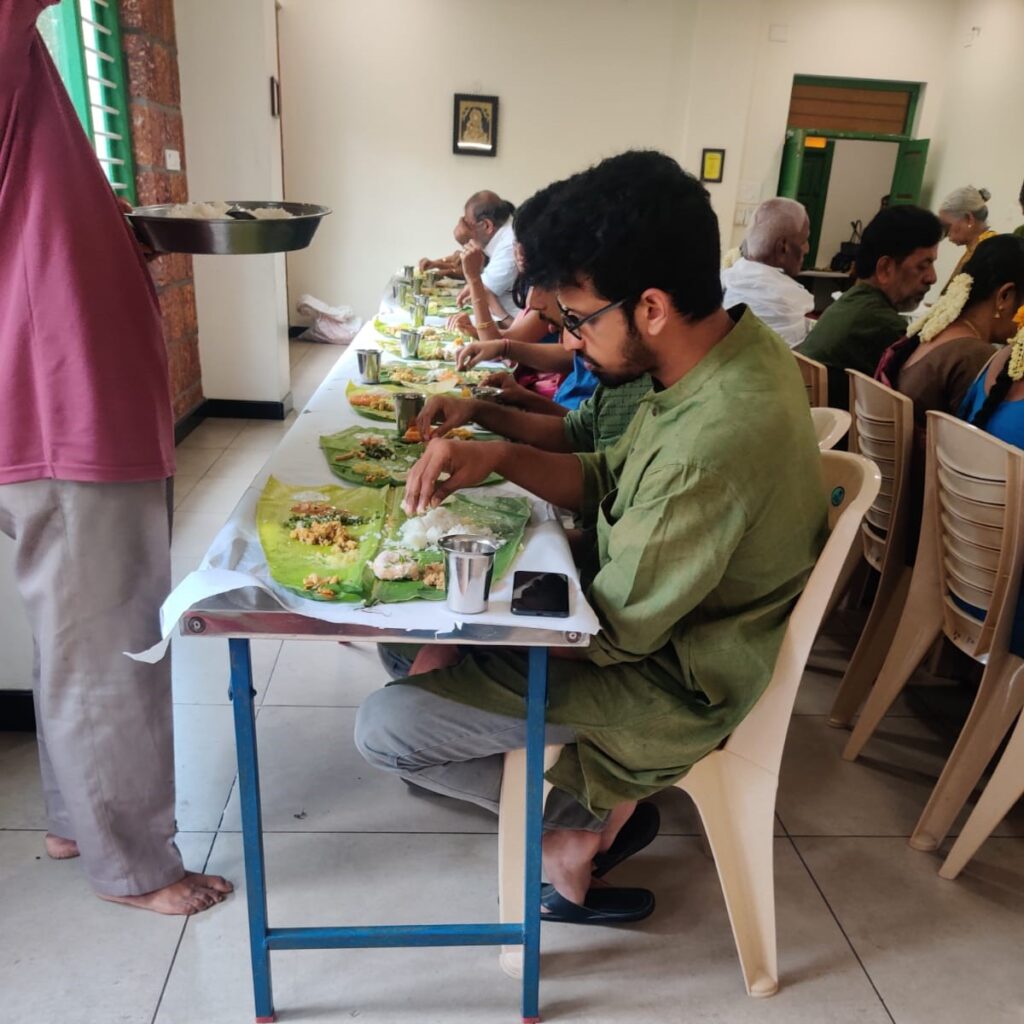
So what were the changes incorporated?
- No usage of paper cups: The family hired tumblers from the Namma Ooru Foundation’s (NOF) Cutlery Bank to serve beverages and water.
- No cups for desserts: Desserts were served on banana leaf itself instead of in cups. The parent couple consciously chose desserts that weren’t runny and could be served and enjoyed on the banana leaf itself.
- No usage of tissue paper: People dug out their handkerchiefs from the depths of their pockets and handbags to wipe their hands.
- No decorative fancy nameboards: The attendees were welcomed by an artistically drawn announcement of the event on a blackboard and not by a fancy name board. The board itself was lent by a friend from Kasturba Nagar.
- No fancy decoration: All decorations were done with flowers that were strung on cotton thread.
- Left-over food was sent to NGOs. The food waste and flowers were sent for composting.
- Cloth bags for Tamboolam: The guests were given tamboolam in unbleached cotton cloth bags. Also, it contained whole manjal (turmeric) and betel nut (gundu manjal and kottai pakku) instead of its packets.
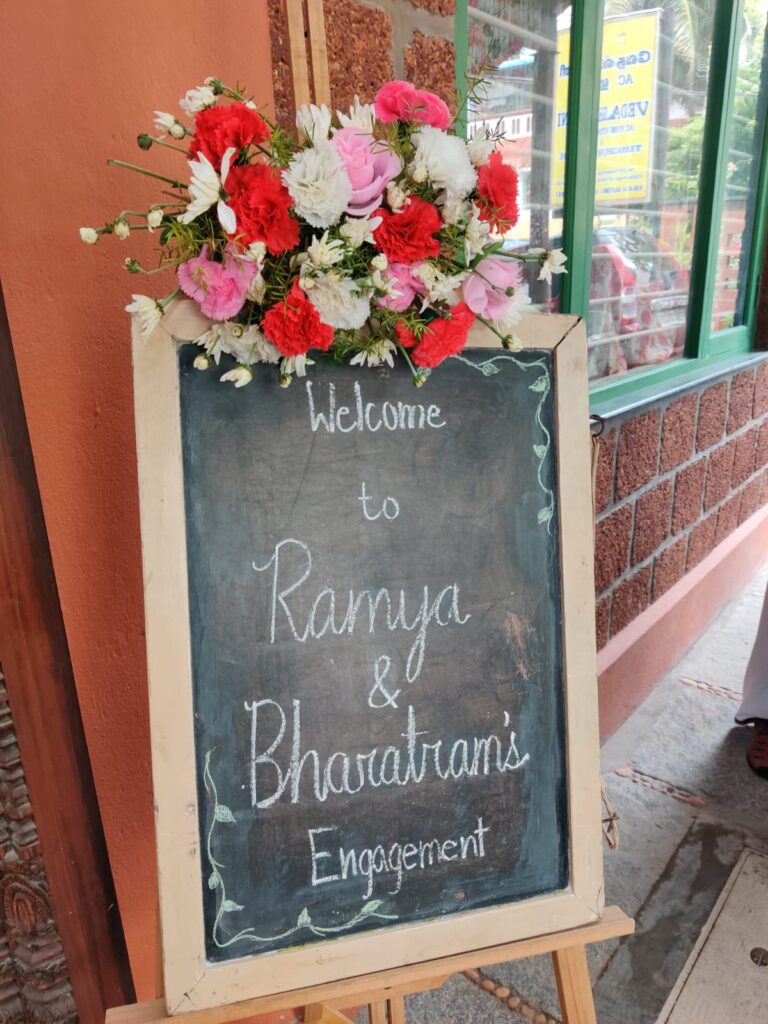
A long list indeed needing meticulous planning! “Yes, it does require planning right now, but once it becomes a way of how things need to be done, it won’t be a ‘task’,” explains Dr.Hema as she delves into the nitty gritty of how it all took shape.
Both the families are passionate about waste management and decided to ensure that minimal waste goes to the landfills. “There were many doubts, and scepticism, but because we were committed, things just fell in place,” says Dr.Hema. The caterer and the hall owners were cooperative and were ready to incorporate any change needed for a near zero-waste event. “To compensate for the lack of tumblers with the caterers, we hired tumblers from the cutlery bank. We have to book it in advance and return them in the same condition we got them – cleaned, wiped and dried. The caterers washed and handed them over at the end of the event, and we wiped and dried them at home before returning them,” she adds.
What was the reaction from the attendees? Any embarrassing situations? “I don’t think they missed any of it. Initially, we were worried about the quality of the tumblers. To our surprise, we found them to be as good as new. Everyone enjoyed the food. Good food is important, the disposables are just frivolities that are not missed. There was no fuss in drinking from tumblers; those who didn’t carry handkerchiefs used their sarees / dupattas / pant pockets etc., for wiping,” Dr.Hema explains with a smile.
This ceremony was the second near-zero waste family event from Kasturba Nagar. In 2018, V.C.Kannan and Jayashree Kannan, conducted a near zero-waste wedding of their daughter Samyukta.
“It was something new at that time, but we were committed to do it,” says Kannan. They coordinated with the Greater Chennai Corporation (GCC) and the waste aggregator of that time to train the staff of the wedding hall, caterers and others involved, on how to segregate waste. They too used steel tumblers for serving beverages, areca plates and bagasse cups for some of the edibles and decorated the venue only with natural flowers, all of which could be composted later. The decorations also included palm hand-fans (visiri), which were subsequently given to the attendees as return gifts.
“We wanted to ensure that most of the waste generated is compostable. We segregated areca plates and bagasse cups, since GCC has a different Micro Composting Centre (MCC) for them and they thus need to go to that specific MCC. Therefore it was very essential to train all those employed / involved in the wedding to understand the nitty-gritty of waste management.”
If it was something new at that time, how did you convince the caterers about the change? “ Many do not agree, as this effort is labour intrinsic, but we were fortunate, as both – the caterer and the hall owners readily agreed. However, in an era when people are ready to spend insanely on weddings, a little more to a good cause shouldn’t matter. But one must be assertive and persistent on the intent,” says Kannan. Dr.Hema says, “Many don’t mind spending thousands on sarees and such, but will think twice to spend on a good cause. There has to be a mind-shift – loosen the pocket, just a bit, to save nature, and tighten it just a bit, when purchasing clothes / jewellery.”
Both Dr.Hema and Kannan are part of Residents of Kasturba Nagar Association (ROKA), which has been on the forefront of implementing solid waste management practices in the locality. All events conducted by ROKA are zero-waste. “At all our meetings, no packaged beverages or packed snacks are allowed. However big the gathering, we serve snacks on areca plates and beverages in steel tumblers, which we pool in from our houses,” explains Janani Venkitesh, Secretary of ROKA. In the latest event of the inauguration of a lane composter, ROKA served coconut water to all attendees, without a straw. The inauguration itself was not a ribbon cutting ceremony, but a garland cutting ceremony.
Janani also shares some of the practices that she and her team follows, every time they step out of the house. “We ALWAYS carry an extra cloth bag, a water bottle, tumbler, spoon, dabba and multiple handkerchiefs. We refuse the bottled water served at events, including weddings, and drink from our own bottle. We carry a dabba to put in edible items that we prefer to eat later,” explains Janani.
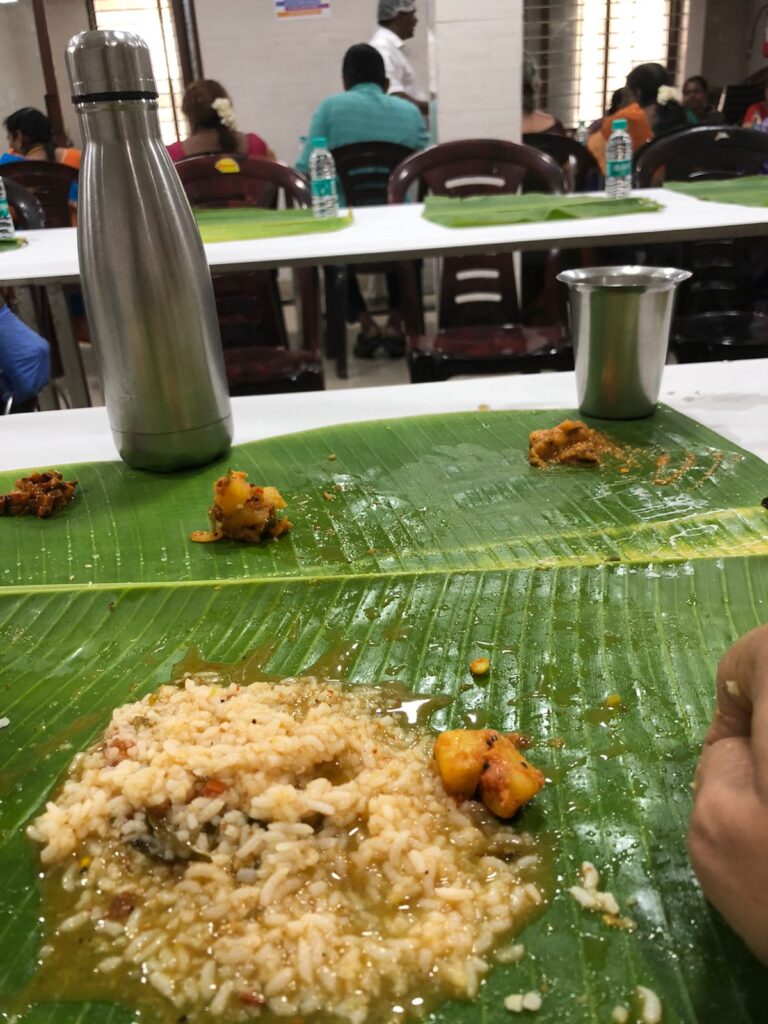
Kasturba Nagar has shown the way to how events without using disposables need not be messy and still maintain the charm. Many leaves from the solid waste management (SWM) book that one can implement!Dr.Hema can be contacted at [email protected]; V.C.Kannan can be contacted at 98410 18301; ROKA can be contacted at [email protected].
Cutlery Bank by NOF
Namma Ooru Foundation (NOF), Thiruvanmiyur, launched its Cutlery Bank in April 2019, providing an option for people to hire steel cutlery for events, instead of opting for disposables. The bank has a stock of 200 numbers each of two varieties of: tiffin plates, cups, spoons and tumblers to rent for parties, functions in Chennai. The cutlery has to be booked at least two days in advance.
“This will result in lesser load to landfills in the form of disposables and will also indirectly contribute to water conservation as the demand for paper cups goes down. Yes, a lot of water is used in the manufacture of these cups. More than what will be required to maintain these stainless steel cutlery,” says P.Natarajan, Founder of NOF.
Now going a step further, NOF is also ready to take the compostable waste from events – big and small. The green compostable waste will be taken to the Pudupet MCC to convert it into black gold.
“Banana leaves, flowers, vegetable and fruit peels, cooked food waste, bagasse products etc. can be bagged separately and delivered to the MCC in Pudupet for processing. There is a processing fee involved depending on the weight of the waste.
The processing requires labour as the flower garlands will have to be manually taken apart before shredding, so that the thread doesn’t get stuck in the blades. Food waste and raw peels will need to be layered with cocopeat (to absorb moisture) so it doesn’t stink by the time it reaches the MCC. To make sure this is done properly and to oversee the bagging of all the organic matter, NOF volunteers can help,” explains Kavitha Sivakumar, a volunteer with NOF.
“Namma Ooru Namma Poruppu!” says NOF. To hire cutlery, reach Kavitha Sivakumar at 95662 60703.
An appeal by ROKA
In the midst of this festive season, members of ROKA appeal to all to shun any kind of single-use plastics even if it’s mentioned as biodegradable. “As we celebrate the Goddess this season, let’s not abuse her by using plastic items and not segregating, leading to more waste sent to landfills. Shunning plastics has to be at all levels – including not using the betel, turmeric and kumkum packet. Simply giving whole betel and turmeric is sufficient,” says Janani.
A resident of Bhaktavatsalam Nagar, Adyar, recently reported to have found rangoli powder in the turmeric and kumkum boxes. Pointing to this instance, Janani adds, “We don’t know the authenticity of what is inside packed items, thus it is always better to go natural.”


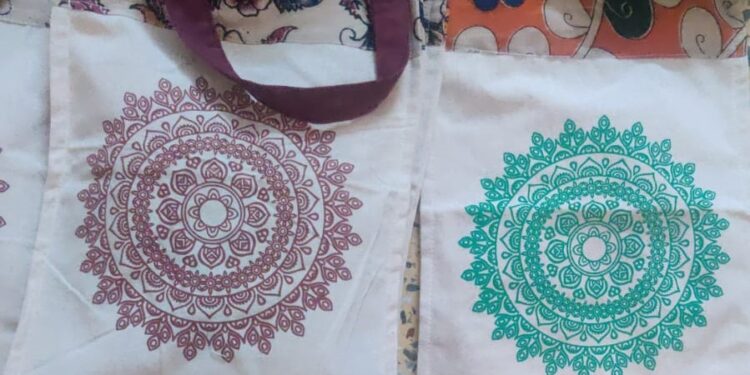







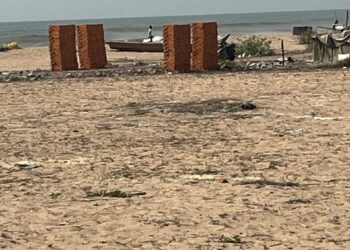


Very nice. I wish more and more people follow this practice.